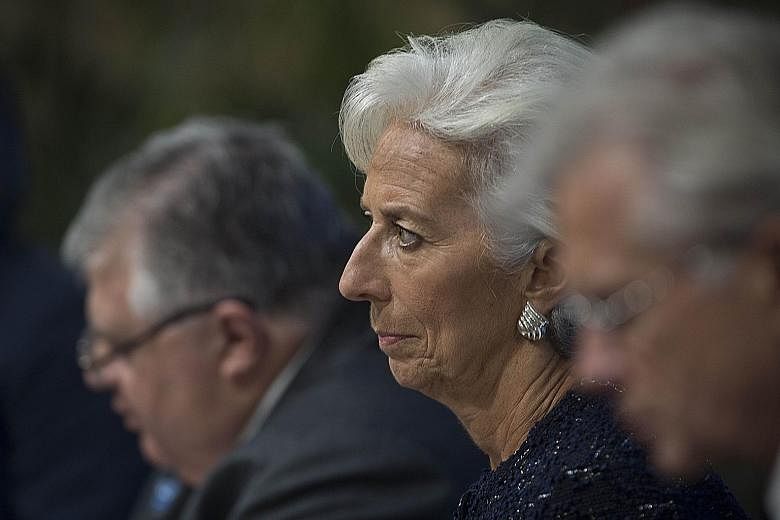LIMA (Peru) • Washington's use of its de facto veto at the International Monetary Fund (IMF) to block reforms giving emerging countries a greater say is jeopardising the IMF's credibility, its leader said on Friday.
The IMF has been caught up in a protracted, politically charged battle over reforms intended to reflect the changing global economy by giving emerging giants such as China more weight at the fund.
"It is an issue for the credibility and the representativeness of the institution, particularly vis-a-vis the under-represented countries," IMF managing director Christine Lagarde said at the fund's annual meeting in Lima, Peru.
The reforms - a doubling of IMF funding and a reallocation of voting power to boost China and other up-and-coming economic powers - were originally propelled by Washington.
President Barack Obama's White House has repeatedly endorsed them.
But the US Congress has refused for three years to sign off on the deal, with some legislators not wanting to contribute more money to the IMF and others concerned about eroding US dominance of the fund.
As the rules stand now, China, the world's second-largest economy, has less than 4 per cent of the voting power at the IMF, barely more than Italy, an economy one-fifth its size.
"I... very much hope that (reforms) will be taken seriously and that the US authorities will actually appreciate the need to reinforce an institution that they participated very actively in creating," Ms Lagarde said.
US Treasury Secretary Jacob Lew repeated the administration's support for the reforms, adopted back in 2010.
"The consequences for the United States and the international financial community are very significant if quota reform is not done," he said.
Meanwhile, Group of 20 (G20) ministers on Friday unanimously agreed to support a plan that tries to prevent multinational companies from avoiding taxes by shifting profits to destinations with lower corporate tax requirements.
In a conference during the annual meetings of the World Bank and IMF, finance ministers from the G20 approved the Base Erosion and Profit Shifting plan.
The plan will see the 20 economies close numerous loopholes within international and national taxation system which allow international companies, such as Google and Starbucks, to avoid paying US$100 billion to US$240 billion (S$140 billion to S$335 billion) in taxes a year.
The plan applies to companies with revenues of at least €750 million (S$1.2 billion) and seeks to force them to pay taxes in each country where business activities generate taxes.
AGENCE FRANCE-PRESSE, XINHUA

